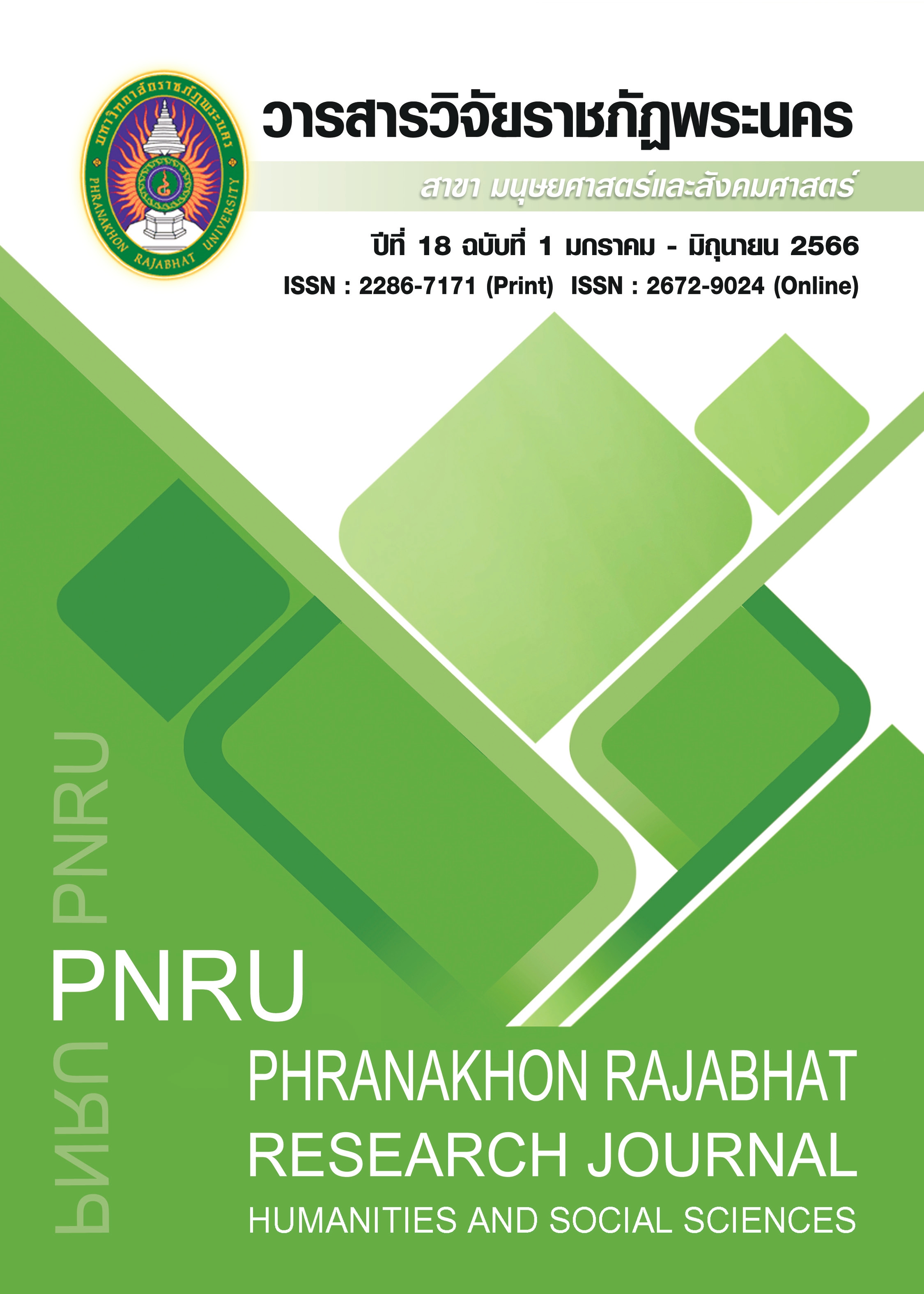THE STUDY OF SLANGS USAGE IN BEAUTY PAGEANT FACEBOOK FAN PAGES AMONG THAI FANS
Main Article Content
Abstract
Slang is an informal language for both written and spoken conversation. Slang can be understood among groups of people who work together or have a common interest. They are also used for a particular time period. The purpose of this research is to study slangs used in beauty pageant groups on Facebook. The data were collected from beauty pageant groups on Facebook with 50,000+ followers between the year 2021 – 2022 and then these slangs were certified by the experts; 1 fan page administrator, 2 slang users, and 1 Thai language expert. The result found that a total of 62 slangs were gathered from three groups of beauty pageant Facebook fan pages from 2021-2022. Results revealed that the word classes of slang found in the beauty pageant Facebook fan pages consisted of 30 words and 32 phrases. Words could be classified into 11 nouns, 8 verbs, 9 adjectives, and 2 adverbs. Pronouns, prepositions, and transitions were not found in the study.
Article Details

This work is licensed under a Creative Commons Attribution-NonCommercial-NoDerivatives 4.0 International License.
Each publish articles were copyright by Phranakorn Rajabhat University
Any contents which appeared in each articles in the journal were authors personal opinion. It did not relate to Phranakorn Rajabhat University and other instructors in the university. Each authors would take responsibility on their articles. If there are any mistake, the authors will take responsibility themselves
References
Adams, M. (2009). Slang: The people’s poetry. New York: Oxford university press.
Agha, A. (2015). Tropes of slang. Signs and Society, 3(2), 306-330.
Alawiyah, S., Zuriyati, & Lustyantie, N. (2021). Slang language as representatives of social culture identity in film step up 2 the streets. International Journal of Language Education and Cultural Review, 7(2), 204-213.
Brand Buffet. (2023). 10 Trends must know, 2023 marketing guide for business advantage. Retrieved from https://www.brandbuffet.in.th/2023/01/2023-hand-book- post-pandemic-study-by-mi-group/ [2023, 4 Jan.]
Chaithaisong, S. (2019). Gender identity communication of beauty queen fan club: a case study of homosexual fan club toward Miss Universe Thailand pageant. Chandrakasemsarn, 26(2), 264-278.
Chaithaisong, S. & Hinviman, S. (2020). Nationalism Identity Communication of Beauty Queen Fan Club: A Case Study of Homosexual Fan Club toward Miss Universe Thailand Pageant. MFU Connexion: Journal of Humanities and Social Sciences, 9(1), 123-148.
Crystal, D. (2001). Language and the Internet. Cambridge: Cambridge University Press.
Goffman, E. (1963). Stigma: Notes on the management of spoiled identity. New York: Prentice-Hall.
Hodkinson, P. (2002). Goth: Identity style and subculture. New York: Oxford university press.
Hogg, M. A., & Terry, D. J. (2000). Social identity and self-categorization processes in organizational contexts. The Academy of Management Review, 25(1), 121–140.
Jenkins, R. (2000). Categorization: Identity, Social Process and Epistemology. Current Sociology, 48(3), 7–25.
Kayanan, J. (2011). Behavior and the Impact of Using Social Network Site: www.facebook.com. (Master degree individual study). Thammasat University, Bangkok.
Longman. (2023). Slang. Retrieved from https://www.ldoceonline.com/dictionary/slang [2023, 6 Mar.]
Office of the royal society. (2011). The royal institute dictionary. The official and prescriptive dictionary of Thai language. Bangkok: Nanmee Publishing.
Saputra, L., & Marlina, L. (2019). An analysis of slang words used by Instagram account Plesbol. E-Journal of English Language and Literature, 8(3), 329-339.
Schiffman, L. G., & Kanuk, L. L. (1991). Consumer behavior. New York: Prentice-Hall.
Tuntimala, C. (2013). Skoy Language: Incident Culture. Institute of Culture and Arts Journal, 14(2), 122-131.


